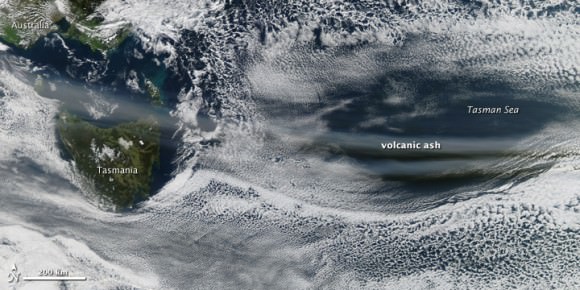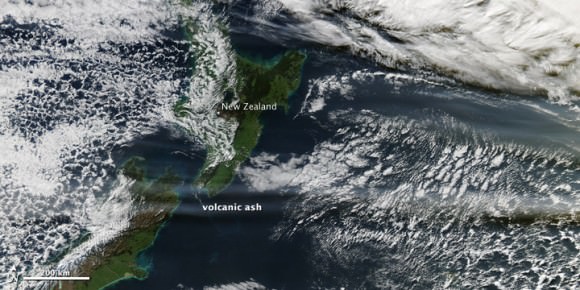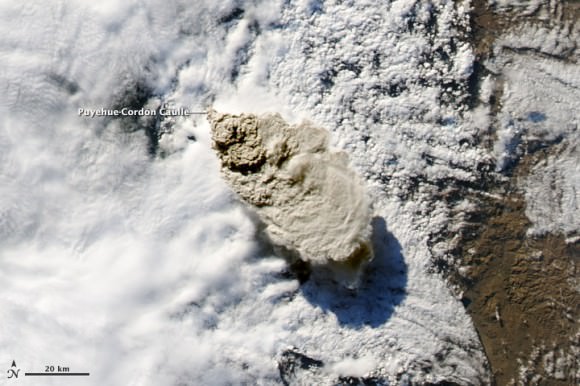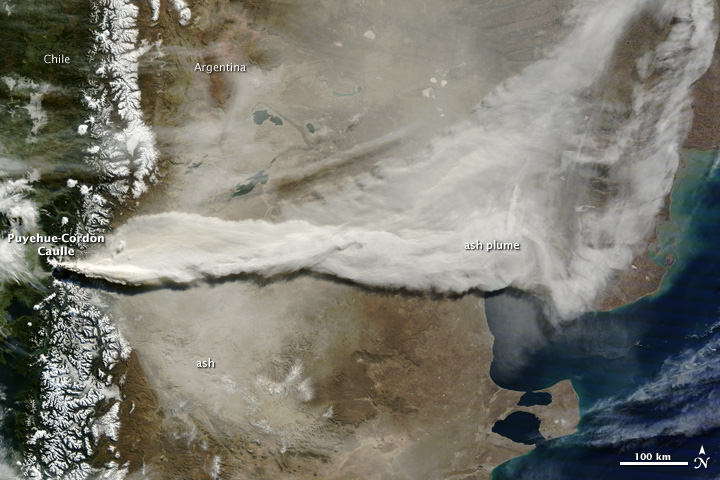[/caption]
An incredible amount of ash is being spewed from the erupting Puyehue-Cordón Volcano Complex in Chile. This image, taken by the Moderate Resolution Imaging Spectroradiometer (MODIS) on the Terra satellite on June 13, 2011, shows a large plume of volcanic ash blowing about 780 kilometers east and then northeast over Argentina. A plume of volcanic ash from this eruption disrupted air traffic as far away as New Zealand on June 13. See images below of how far the ash has traveled in the atmosphere, a half a world away.
The Moderate Resolution Imaging Spectroradiometer (MODIS) on the Aqua satellite acquired the two images below of the Chilean ash plume on June 13, 2011 showing that a concentrated plume was visible more than half a world away. The first image shows the ash plume over southern Australia and the Tasman Sea, while the second image provides a view farther east over New Zealand and the South Pacific Ocean.


NASA’s Earth Observatory website says that although the intensity of the eruption has decreased since the initial eruption, the volcano’s activity is holding steady. The plume reached between 4 and 8 kilometers in altitude on June 13, its height varying with the intensity of the eruptive episode throughout the day.
Here’s how the volcano looked back on June 4, 2011 when it began spewing ash 45,000 feet (14,000 meters) into the air. The Moderate Resolution Imaging Spectroradiometer (MODIS) on the Aqua satellite captured this natural-color image shortly after the eruption began:

See more images and data on this volcano at the NASA Earth Observatory Natural Hazards website.
You can follow Universe Today senior editor Nancy Atkinson on Twitter: @Nancy_A. Follow Universe Today for the latest space and astronomy news on Twitter @universetoday and on Facebook.


So, can we safely predict an even cooler winter in the southern hemisphere? There was snow in the Namib and unusual cold in Australia even before this eruption, so what else can we expect?